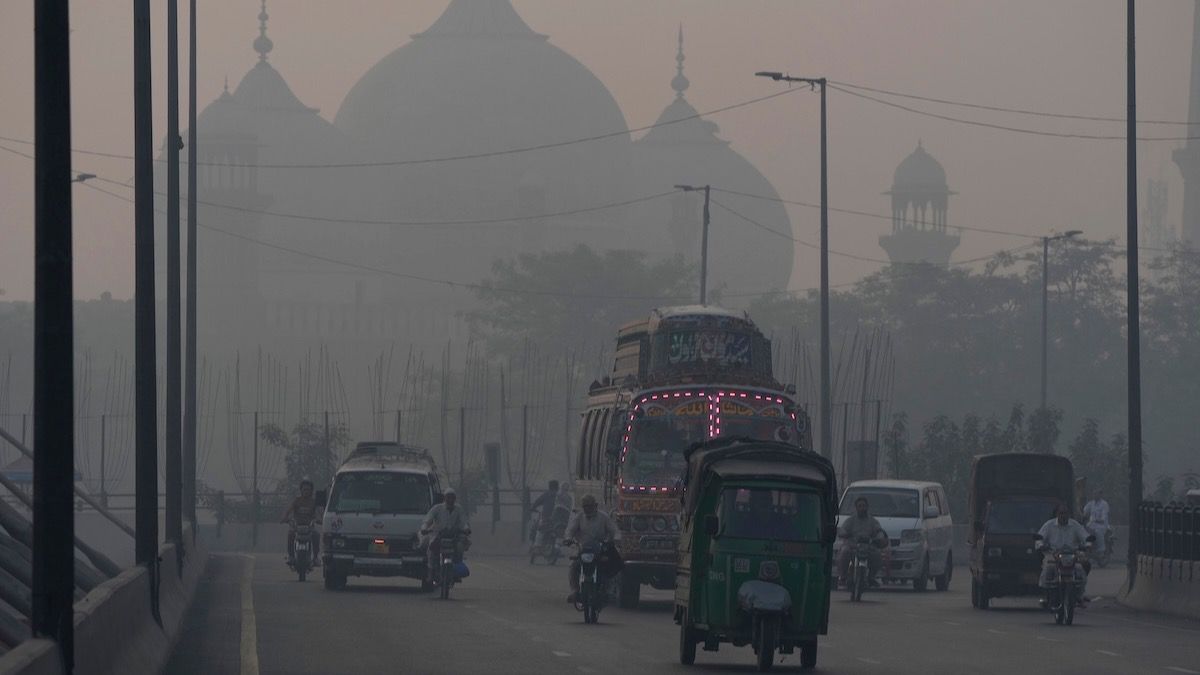Lahore: Pakistan’s Punjab government on Friday declared smog a “health crisis” and used artificial rain in several cities across the province in an effort to combat its hazardous levels, as millions reported breathing problems and other respiratory issues over the past month.
This is the second time the Punjab government went for artificial rain. In December last year, the government had a successful cloud seeding experiment in Lahore.
“The cloud seeding experiment conducted in Jhelum, Chakwal, Talagang, and Gujar Khan cities of Punjab resulted in rainfall in Jhelum and Gujar Khan on Friday,” the Punjab government said in a late night statement.
It said it held a successful trial of artificial rain using local technology. “Cloud seeding was carried out at 2pm Friday and within hours, it rained in Jhelum and Gujar Khan. There is also a strong likelihood of rainfall in Lahore after this experiment. The artificial rainfall will significantly help reduce smog,” it said.
Earlier in the day, addressing a press conference here, senior minister Marriyum Aurangzeb said the Punjab government has imposed a “health emergency” in Lahore and Multan districts to combat dense smog blanketing the province of about 130 million population for the last few weeks.
According to the provincial health department, around two million cases of respiratory disease, besides complaints of asthma, chest infections, conjunctivitis and heart issues, have been reported in hospitals during the last month.
Dense smog caused by toxic pollutants has engulfed several cities in Punjab with Lahore and Multan being the worst hit.
The AQI (air quality index) reading in Multan has already crossed 2,000 twice, setting a new record for air pollution.
Aurangzeb said the hospital data did not give the complete picture of the adverse health impacts caused by smog as it only included reported cases.
“Many people suffering from respiratory problems don’t visit hospitals to seek doctors’ advice and instead self-medicate at home or visit informal dispensaries,” she said.
“At the moment, the smog crisis has turned into a health crisis. Various factors contributing to smog include transport, agriculture, energy, our habits, behaviour, and actions towards nature,” she said, adding that the Punjab government had made a 10-year smog mitigation plan to address the issue.
According to the government, the artificial rain project was a collaborative effort involving Pakistan’s scientific research and development experts (SPD), Army Aviation, PARCO and the Environmental Protection Agency (EPA) of Punjab government, culminating in the successful artificial rain.
Chief Minister Maryam Nawaz congratulated all the institutions and scientific experts involved in the achievement.
“Today, dedication, hard work, and expertise have written a new chapter in the history of Punjab. The entire nation is proud of the team,” she said.
Lahore and some other cities of Punjab are facing the worst pollution for the last few weeks.
The Punjab government has taken various measures, including shutting schools, cracking down on vehicles emitting excessive smoke, and prohibiting barbecues and visits to recreational places, to combat smog.
These measures have, however, proven insufficient to address the crisis.
(Except the headline, this story is not edited by Republic and is published from a syndicated feed)
Artificial Rain Carried Out In Several Cities Across Pakistan After AQI Crosses Hazardous Levels world-news World News | Latest International News | Global World News | World Breaking Headlines Today




